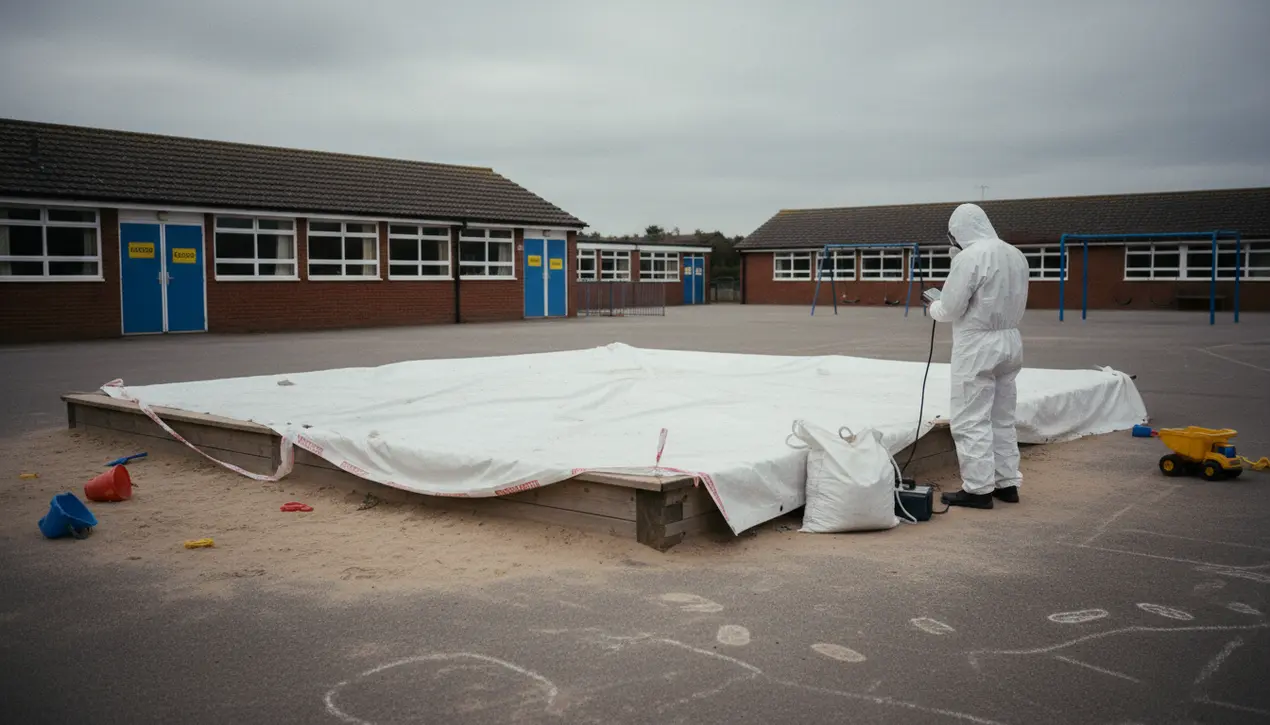
OthereducationSchool Reforms
Australian and NZ schools close due to asbestos in children's sand.
RA
Rachel Adams
2 hours ago7 min read
In a move that has sent a ripple of unease through communities and playgrounds alike, Australian regulators have been forced to issue a recall for several children's sand products found to contain asbestos, a toxic mineral with a dark and lethal industrial legacy. While authorities have been quick to classify the immediate health risk as 'low,' a term meant to soothe public anxiety, the very presence of this known carcinogen in the one place designed for childhood innocence—the sandpit—speaks to a profound and systemic failure in our environmental safeguards and material supply chains.This isn't merely a product recall; it's an ecological and public health alarm bell. The affected sands, sourced from a specific quarry now under intense scrutiny, found their way into the play areas of schools and childcare centers across multiple states, forcing temporary closures as frantic testing and removal efforts began.The irony is crushing: the very material that once insulated homes and powered industries, leaving a legacy of mesothelioma in its wake, has now infiltrated the most vulnerable of environments. As a biologist, I see this not as an isolated incident but as a symptom of our fractured relationship with the natural world and the industrial processes we've imposed upon it.Asbestos fibers, once airborne, are a silent, microscopic threat, and while the risk from damp, contained play sand is demonstrably lower than from friable insulation in a demolition site, the 'low risk' assessment offers little comfort to a parent watching their child build castles with tainted materials. It echoes the early, dismissive warnings about other environmental toxins, from lead in gasoline to PCBs in waterways, where initial reassurances were later proven catastrophically wrong.The situation demands a full lifecycle analysis: Where did the contamination originate? What oversight protocols failed to prevent it? And what does this say about the recycled material streams we increasingly rely upon? Expert commentary from industrial hygienists suggests that even low-level, chronic exposure in early childhood could have unforeseen long-term consequences, a haunting variable that cannot be easily quantified. The potential fallout extends beyond health, threatening to erode public trust in regulatory bodies and ignite a wave of litigation reminiscent of the class-action suits that followed the original asbestos scandals.For Australia and New Zealand, nations that pride themselves on a clean, green image and high standards of living, this episode is a stark reminder that the ghosts of our industrial past are not so easily buried. It calls for a renewed vigilance, a tightening of import and manufacturing regulations, and a commitment to a precautionary principle that prioritizes the health of our children over the convenience of supply chains. The sand in the timer is running out on our complacency.
#featured
#asbestos
#product recall
#school closures
#children's safety
#health risk
#Australia
#New Zealand
Stay Informed. Act Smarter.
Get weekly highlights, major headlines, and expert insights — then put your knowledge to work in our live prediction markets.
Related News
Comments
Loading comments...
© 2025 Outpoll Service LTD. All rights reserved.